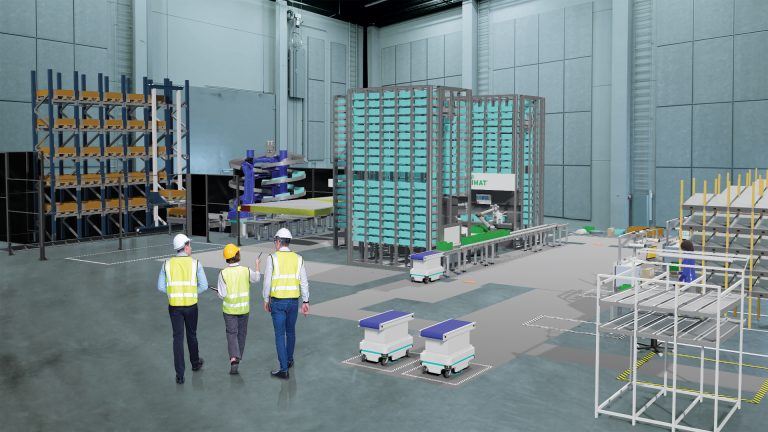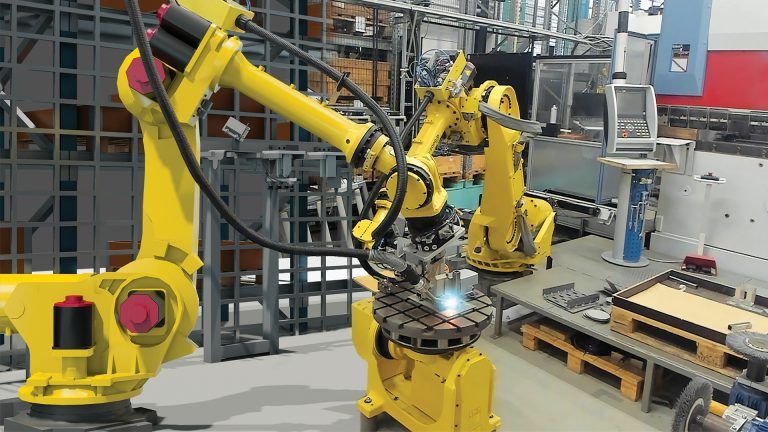Five reasons why the Industry 4.0 needs to be on your company’s agenda
We’ve listed five key reasons why Industry 4.0 is a hot topic for all manufacturing companies. Read more.

Transforming our ideas of manufacturing
In a recent article, we discussed the Internet of Things, Industry 4.0 and Industrial Internet concepts from the point of view of factory simulation. If the topic is unfamiliar, we strongly recommended reading it before delving deeper into this article.
Industry 4.0 is an overarching concept that brings together various solutions that connect factories and their components through intelligent use of data. In order to highlight the importance of the concept, we created a short, to-the-point list of reasons why you should look into intelligent manufacturing solutions.
1. Your competitors are already on it
According to a recent survey and estimated 140 billion €* will be invested every year by European companies in transforming the ways they manufacture goods.
2. Revenue potential to match the investments
The necessary investment might seem large, but it’s estimated to payback surprisingly soon. While the digitalization of the manufacturing industry is still at its infant phase, it’s expected to generate an annual 110 billion € in new revenues.
3. Industry 4.0 can increase your productivity
The manufacturing industry faces constant pressure to produce more while using fewer raw materials and less energy. The aforementioned survey estimated that smarter factories and production lines would result in an annual 3.3% increase in efficiency over the next few years resulting in 2.6% annual cost savings.
4. Industry 4.0 can help you create new products
While adding intelligence to your production line can result in vast cost savings, the possibilities go beyond mere optimization. With better ways of designing and creating your production facilities, you can also develop whole products to match your customers’ needs.
5. Industry 4.0 will create new business models
Digitalization changes the way humans interact with machines. As less manual labour is required in the production of the product, humans can focus on doing what we do best – developing new ideas that can ultimately lead to new products and services. More and more revenue might thus come from the services around a product and not just the product itself.
We firmly believe that connected, data-sharing components will change the way factories work. If you are interested in learning more and seeing how such factories can easily be designed, contact us or meet us at Hannover Messe.
*Source: http://www.strategyand.pwc.com/media/file/Industry-4-0.pdf
Further reading

Manufacturing experts on why early simulation and people-first automation matter
Earlier this year, Visual Components hosted a roundtable discussion titled “How to Achieve Efficiency in Production,” bringing together Finnish experts from industry and academia to share their insights on how...

The future of automated manufacturing (and why humans still matter)
Automation in manufacturing has been evolving for decades, but its true impact isn’t in replacing people, it’s about making them more capable. We spoke with Mika Anttila, one of Visual...

Understanding digital twins in manufacturing
Digital twins go far beyond static models or simulations. They bridge the gap between virtual and physical systems, offering real-time insights and control. But with so many definitions floating around,...